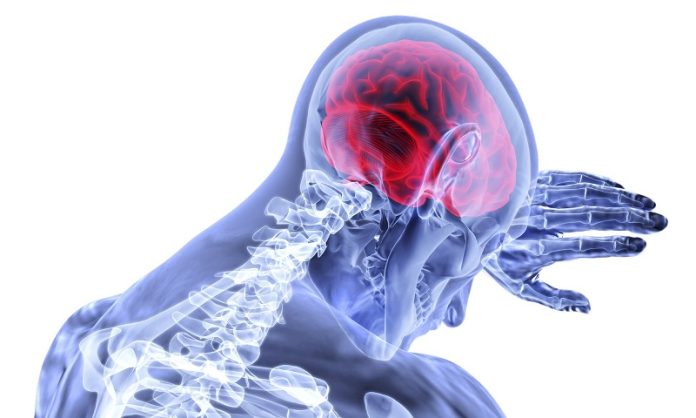
Researchers have discovered a new molecule called LK-2 that could lead to effective treatments for brain injuries caused by strokes.
This groundbreaking discovery was made by scientists at The Hospital for Sick Children (SickKids) in Toronto and Shanghai Jiao Tong University School of Medicine.
An ischemic stroke occurs when blood flow to a part of the brain is blocked, depriving brain cells of oxygen and nutrients.
Without quick treatment, brain cells can die, leading to permanent brain damage and affecting the brain’s functions.
Stroke is a major cause of death and disability worldwide, affecting millions of people every year.
Dr. Lu-Yang Wang, a Senior Scientist at SickKids, and his team, along with collaborators in China, published their findings in the journal Nature.
They discovered that the molecule LK-2 could protect brain cells during a stroke and prevent the resulting brain damage.
“Our findings provide a new way to think about saving brain cells while minimizing the harmful side effects of traditional stroke treatments,” says Dr. Wang, who is also a Canada Research Chair in Brain Development and Disorders. “The LK-2 molecule could be the key to developing successful treatments for stroke patients.”
One of the main causes of brain damage during a stroke is a neurotransmitter called glutamate. When the brain is deprived of oxygen and nutrients, glutamate levels rise dramatically. This overstimulates receptors called N-methyl-D-aspartate receptors (NMDARs) on brain cells, causing a surge of calcium to enter the cells and triggering a series of events that lead to cell death.
For years, researchers have tried to create drugs that block NMDARs to prevent the damage caused by high levels of glutamate. However, these drugs have been unsuccessful in clinical trials because NMDARs are crucial for normal brain functions like learning and memory. Blocking NMDARs completely can cause serious side effects, such as psychosis and cognitive impairment.
The research team found that glutamate can also activate acid-sensing ion channels (ASICs), which are usually triggered by acidic conditions. Like NMDARs, ASICs are present in the membrane of brain cells and allow calcium ions to enter the cells when stimulated.
“We discovered that glutamate can enhance the activity of ASICs, especially under the acidic conditions that occur during a stroke,” explains Dr. Wang. “This means that glutamate is damaging brain cells through both NMDARs and ASICs, which we did not know before.”
By identifying the specific site in ASICs where glutamate binds, the researchers developed a new molecule, LK-2, that can selectively block the glutamate binding site in ASICs without affecting NMDARs.
In preclinical models, the team found that LK-2 effectively prevented glutamate from overstimulating ASICs, reducing the flow of calcium into cells and preventing cell death. Importantly, LK-2 did not affect NMDARs or other normal neural transmissions, suggesting it could be a safe and effective treatment for stroke.
“Our research has revealed a new way to protect the brain from glutamate toxicity without interfering with NMDARs,” says Dr. Wang.
The team will continue to study the function and mechanisms of LK-2, with the hope of developing future clinical trials.
Dr. Wang’s team acknowledges the contributions of Dr. Julie Forman-Kay, a Senior Scientist and Program Head of Molecular Medicine at SickKids, and Dr. Iva Pritišanac, a postdoctoral fellow in Forman-Kay’s lab, who helped identify the binding sites for glutamate on ASICs.
This discovery brings new hope for developing effective treatments to protect the brain from stroke-related injuries and improve outcomes for stroke patients.
If you care about stroke, please read studies about how to eat to prevent stroke, and diets high in flavonoids could help reduce stroke risk.
For more information about health, please see recent studies about how Mediterranean diet could protect your brain health, and wild blueberries can benefit your heart and brain.



